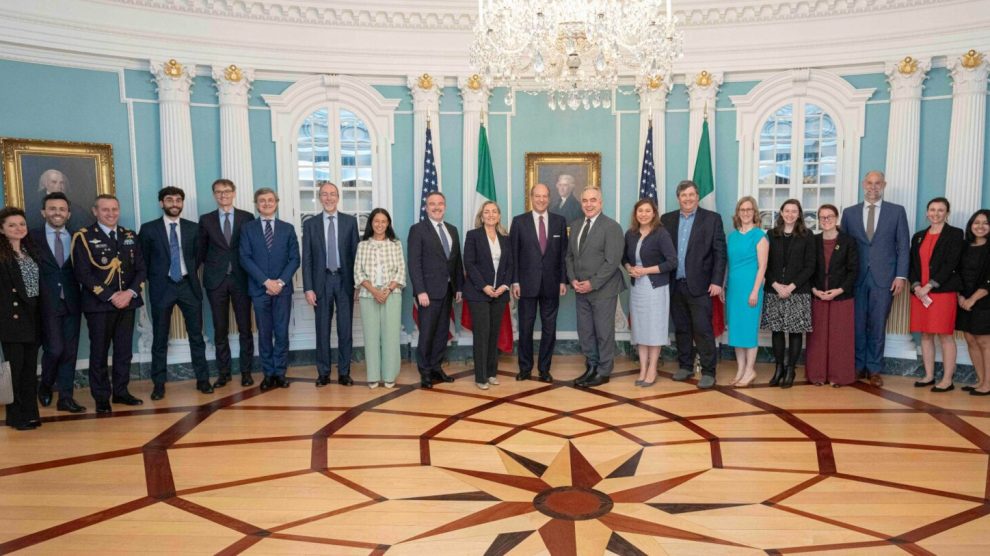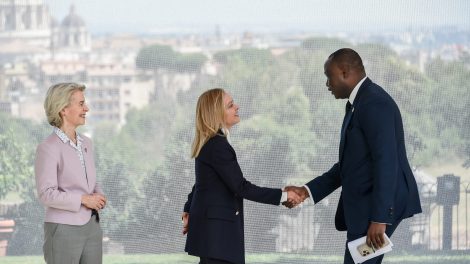The Rome-Washington dialogue. On Tuesday, a delegation from the Italian Foreign Ministry, led by Secretary General Ambassador Riccardo Guariglia, convened in Washington to discuss issues related to the Indo-Pacific region. Deputy Secretary of State Kurt Campbell led the US delegation, including diplomats and officials from the Pentagon and the National Security Council.
- According to the US State Department media note, the discussion focused on “joint priorities in the region to advance a free and open Indo-Pacific, including maintaining peace and stability in the South China Sea and in the Taiwan Strait.”
- The two delegations also discussed how to “persuade the People’s Republic of China to cut off supplies of dual-use items to Russia that are being used in its war against Ukraine,” the crisis in Myanmar, maritime and security cooperation in the Indo-Pacific, and regional clean energy initiatives.
The G7 and the Indo-Pacific. The closing statement of the G7 foreign ministers in Capri was particularly explicit in its passages on the Indo-Pacific. It made a clear and direct appeal to the ongoing tensions driven almost entirely by Beijing’s claims over Taiwan or the China Sea or, more broadly, by its ambitions to expand its power and influence in the region.
- The communiqué vowed for a “free and open Indo-Pacific, based on the rule of law, which is inclusive, prosperous, secure, grounded on respect for international law, notably the UN Convention on the Law of the Sea and the principles of territorial integrity, sovereignty, peaceful resolution of disputes, fundamental freedoms, and human rights”.
- The statement will serve as the basis for the final declaration of the G7 summit in Apulia, establishing the group’s stance on key issues in the region.
- This will be particularly relevant as a month after the June G7 meeting, Italian Prime Minister Giorgia Meloni will fly to Beijing for the first meeting with Chinese President Xi Jinping since Italy decided not to renew the Memorandum of Understanding on the Belt and Road Initiative.
Italy and the Indo-Pacific. The Washington meeting confirms Italy’s commitment to increasing its engagement with the Indo-Pacific and strengthening its role in the region. Over the years, Italy has been building its presence in the area through cultural and trade policies with Indo-Pacific countries and by establishing strategic partnerships such as those with India, Japan and Vietnam.
- Moreover, by increasing its military presence, Italy is attempting to position itself as a de facto active player in the regional geostrategic dynamics. This is confirmed by the deployment of the aircraft carrier strike group Cavour in the region and by taking the lead of the EU mission “Aspides” to protect the Indo-Mediterranean routes between Europe and Asia.




